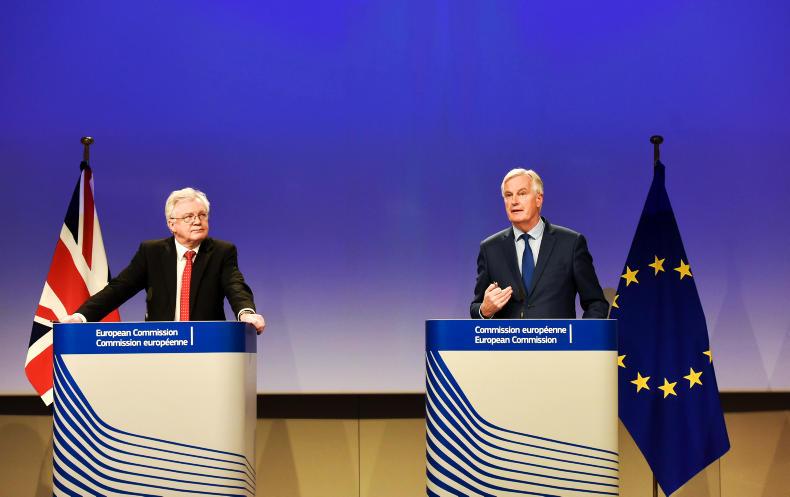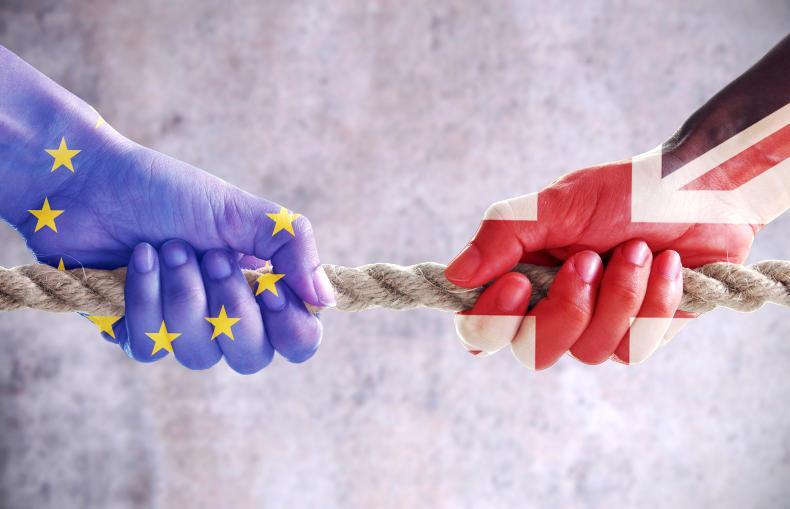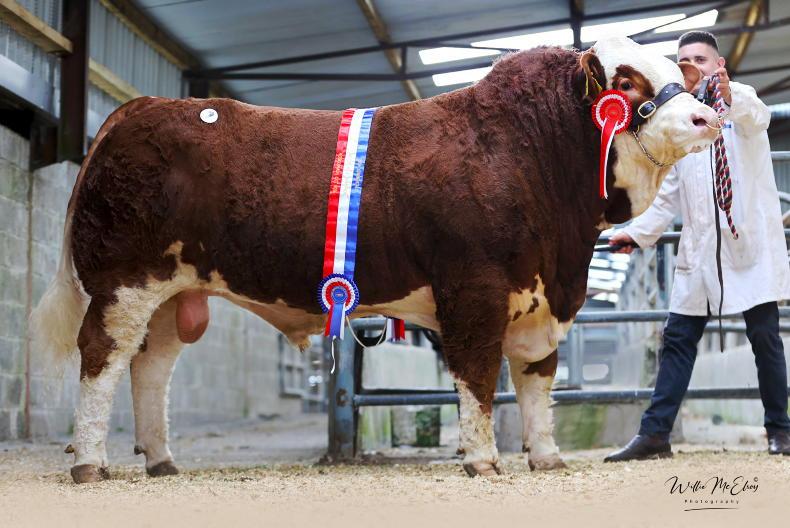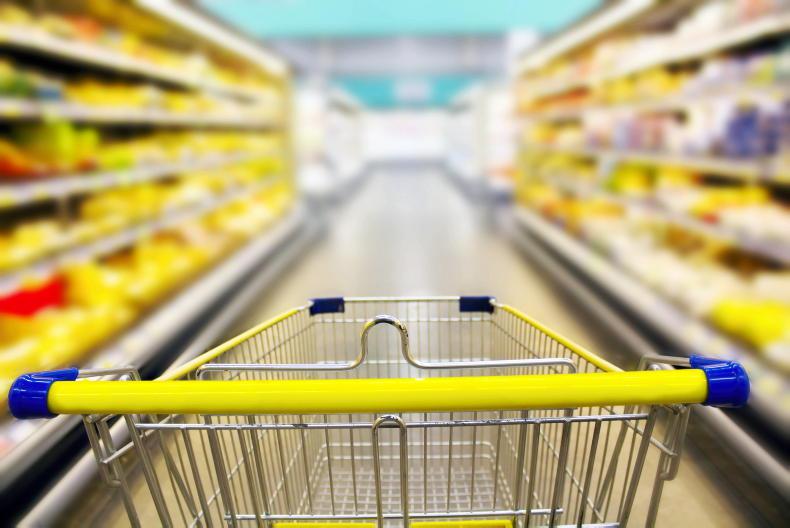Two years after the UK voted to leave the EU, its government has presented a plan that addresses the future relationship with its former partners in the EU 27.
It is being described as a plan for a soft Brexit, and certainly from the perspective of Irish farmers if what is proposed emerges as the outcome, it goes a long way to solve not only the Irish border issue but the east-west trade problem as well.
UK proposal
Basically, what the UK government is saying is that it will stay aligned to EU standards on agriculture and goods. That means no hormone-treated beef or chlorine-washed chicken from the US in any deal that they may negotiate.
The massive Irish trade with Britain across all commodities, representing over half Ireland’s total exports, could continue
What is more, there is a role defined for the EU court as part of any resolution of disputes that is required. This EU “common rule book” for industrial goods and agricultural products in effect would mean a continuation of the status quo in these areas.
For farmers and the Irish agri-food industry, this is ideal. It would enable trade continue uninterrupted on the island of Ireland. Lambs and milk could continue coming south, pigs and cattle could still go north. What is really important, however, is that trade with Britain could continue in its present form as well, which means the massive Irish trade with Britain across all commodities, representing over half Ireland’s total exports, could continue.
Tough talking ahead
Of course, critics of these proposals will say that the UK is cherry-picking as it doesn’t provide for synchronisation of services nor the freedom of movement of people.

David Davies (left) and Michel Barnier (right).
However, for the first time since negotiations began, Brussels has now to address real proposals from the UK. The EU’s lead negotiator Michel Barnier said earlier in the day in an address to the Irish Institute of EU affairs in Brussels that the EU would be flexible if the UK relaxed its red lines. This is a major moving of the red lines and the ball is in Brussels' court.
For farmers on the island of Ireland, it is too early to say problem solved, but equally it hugely reduces the risk of a no-deal Brexit with its catastrophic consequences which was becoming more likely as the departure of the UK came closer.
Read more
What a no-deal Brexit would do to Irish prices in Britain
Two years after the UK voted to leave the EU, its government has presented a plan that addresses the future relationship with its former partners in the EU 27.
It is being described as a plan for a soft Brexit, and certainly from the perspective of Irish farmers if what is proposed emerges as the outcome, it goes a long way to solve not only the Irish border issue but the east-west trade problem as well.
UK proposal
Basically, what the UK government is saying is that it will stay aligned to EU standards on agriculture and goods. That means no hormone-treated beef or chlorine-washed chicken from the US in any deal that they may negotiate.
The massive Irish trade with Britain across all commodities, representing over half Ireland’s total exports, could continue
What is more, there is a role defined for the EU court as part of any resolution of disputes that is required. This EU “common rule book” for industrial goods and agricultural products in effect would mean a continuation of the status quo in these areas.
For farmers and the Irish agri-food industry, this is ideal. It would enable trade continue uninterrupted on the island of Ireland. Lambs and milk could continue coming south, pigs and cattle could still go north. What is really important, however, is that trade with Britain could continue in its present form as well, which means the massive Irish trade with Britain across all commodities, representing over half Ireland’s total exports, could continue.
Tough talking ahead
Of course, critics of these proposals will say that the UK is cherry-picking as it doesn’t provide for synchronisation of services nor the freedom of movement of people.

David Davies (left) and Michel Barnier (right).
However, for the first time since negotiations began, Brussels has now to address real proposals from the UK. The EU’s lead negotiator Michel Barnier said earlier in the day in an address to the Irish Institute of EU affairs in Brussels that the EU would be flexible if the UK relaxed its red lines. This is a major moving of the red lines and the ball is in Brussels' court.
For farmers on the island of Ireland, it is too early to say problem solved, but equally it hugely reduces the risk of a no-deal Brexit with its catastrophic consequences which was becoming more likely as the departure of the UK came closer.
Read more
What a no-deal Brexit would do to Irish prices in Britain










SHARING OPTIONS